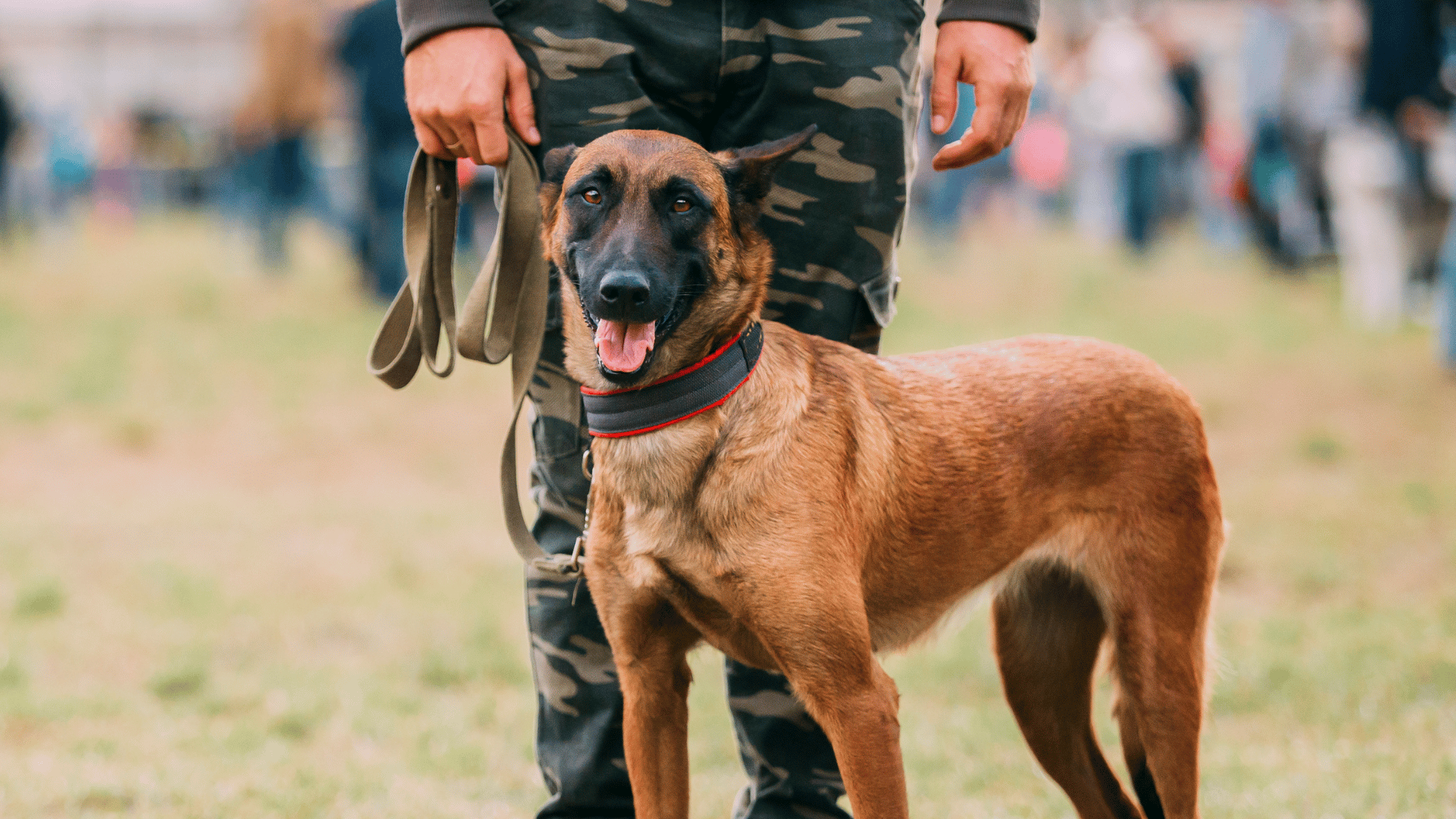How to Train Your Dog to Get Peaceful
Your dog’s your sidekick—those quirky head tilts, eager yaps, and snuggly moments make them pure gold. But when chaos erupts, like doorbell frenzies or couch-jumping sprees, you’re likely wondering how to Train Your Dog to Get Peaceful. With 2025’s virtual trainers and wearable pet tech, mastering how to Train Your Dog to Get Peaceful is easier than ever. This guide’s your roadmap to turning your pup into a chill companion, loaded with vet-approved tips, top tools, and tricks to sidestep pitfalls. We’ll keep it real and fun, helping you and Oscar, my cheeky Dachshund, create a calmer home vibe!
Why a Peaceful Pup Rocks
A calm dog means less stress, fewer barks at passing cars, no shredded slippers, and more cozy evenings together. Training your dog to be peaceful isn’t just about taming wild antics; it’s about fostering trust and a relaxed home. In 2025, techy tools like apps and smart collars make it a breeze. Let’s explore what it takes to nail How to Train Your Dog to Get Peacefully and get Oscar lounging like a champ.
The Magic of Calm Training
Training for peace teaches your dog to stay cool, whether it’s during a storm or a noisy delivery. ASPCA says gentle, reward-based methods boost confidence and cut anxiety, turning your dog into a mellow buddy. Forget yelling—think treats and patience. Oscar used to go bonkers at doorbells, but steady training’s got him snoozing through them now.
Dodging Chaos Triggers
Every dog’s got their thing, like chasing shadows or yapping at strangers. Pinpointing what riles your pup is the first step. Harsh corrections just amp up stress, so focus on redirecting their energy to calm actions, like sitting or grabbing a chew toy.
Building Blocks for a Chill Dog
A peaceful dog feels secure, trusts you, and gets what you expect. It’s all about exercise, brain games, and clear signals. Here’s the foundation for how to Train Your Dog to be peaceful.
Exercise to Melt the Mania
A pooped pup’s a calm pup. Daily walks, tug games, or fetch sessions drain energy, so your dog’s less likely to go nuts. Aim for 30-60 minutes of activity, based on your dog’s breed—Oscar’s tiny legs need less than a Husky’s. PetMD suggests blending physical play with mental challenges to tame hyperactivity.
Brain Games for Focus
Bored dogs get rowdy. Puzzle toys, scent hunts, or short training sessions keep their minds sharp. Teach tricks like “roll over” or “wait” to channel Oscar’s energy. Mental work’s like a nap—it calms without a sprint.
Consistent Cues for Clarity
Dogs love routine. Simple commands like “sit,” “stay,” or “hush” give them purpose. Use the same words and rewards—treats, praise, or a quick pat do the trick. Clear cues help Oscar know what’s okay and what’s a no-go.
How to Train Your Dog to Get Peaceful: Core Methods
In 2025, training’s tech-savvy, but it’s still about patience and positivity. Here’s how to teach your dog to stay serene in any chaos.
Positive Reinforcement: The Game-Changer
Reward good vibes, and your dog’ll keep ‘em coming. When Oscar stays quiet during a knock, toss him a treat or say “nice job!” Ignore barking—attention feeds it. The International Association of Animal Behavior Consultants says positive reinforcement builds trust fast, making your pup pumped to learn.
Desensitization for Hot Buttons
Dog lose it at doorbells or passersby? Ease them into the trigger slowly. Play a soft doorbell sound, reward calm, and crank it up bit by bit. For Oscar, I used faint chimes and treats—now he barely flinches at the real deal.
Build a Chill Spot
Create a cozy nook—a crate, bed, or mat—where your dog can relax. Teach “go to place” by guiding them there with treats, then reward staying. This spot’s their safe zone during mayhem, like when kids storm in. Oscar’s crate with a soft blanket’s his happy place.
Tools to Supercharge Training
From apps to gadgets, 2025’s pet tech makes training smoother. Here’s what’s clutch for calming your pup.
Virtual Training Apps
Apps like GoodPup or Puppr hook you up with trainers via video, ideal for hectic schedules. You get custom plans for stuff like Oscar’s doorbell obsession. PetMD says virtual sessions match in-person results for many dogs, plus they fit your life.
Smart Collars and Trackers
Wearables like Fi or Whistle collars monitor your dog’s activity and stress. If Oscar’s pacing spikes before a freakout, you’ll know to toss a toy or treat. These sync with apps for real-time data, leveling up your training game.
Calming Gear
Pheromone sprays, anxiety wraps, or vet-approved CBD chews can dial down stress. Check with your vet first—Oscar’s vet greenlit a Thundershirt for his thunder panics, and it’s been a lifesaver. Pair these with training, not as a solo fix.
Tackling Common Chaos Moments
Every dog’s got their trigger—here’s how to master how to Train Your Dog to Get Peacefully for top trouble spots.
Doorbell Madness
If your dog goes berserk at the door, stage fake knocks. Have a pal tap softly, reward calm, and ramp up the noise. Teach “go to place” so Oscar hits his mat instead of bolting. Stick with it—letting him charge sometimes messes with progress.
Guest Hype
Guests can spark a bark-a-thon. Before the company shows, tire your dog with a walk. Keep them leashed initially, rewarding quiet sits. Have guests ignore Oscar till he’s calm—attention fuels his frenzy. IAABC says this links visitors to chill vibes.
Alone Time Jitters
If your dog panics when you dip out, start with brief exits. Leave for 30 seconds, return, and reward calm. Stretch it out slowly. A stuffed Kong keeps Oscar distracted while I’m gone. ASPCA says gradual absences ease separation woes.
Mistakes to Dodge
Training’s a process, and slip-ups happen. Here’s how to stay on track.
Inconsistency Kills Progress
Mixed messages throw dogs off. If “down” means lie down today and hop off the couch tomorrow, Oscar’s confused. Use one command per action and reward the same way every time. Get the whole fam on the same page.
Expecting Overnight Miracles
Calm takes time—Oscar won’t be Buddha in a week. Small wins, like ignoring one doorbell, lead to big ones. PetMD says most dogs need weeks to months for solid calm, so keep grinding.
Skimping on Activity
A dog with bottled-up energy’s a wrecking ball. Miss Oscar’s walk, and he’s gnawing my laces by lunch. Pair training with daily exercise—physical and mental—to make calm stick. A tuckered pup’s your best bet.
When to Grab a Pro
Some dogs, like Oscar with his storm fears, need a boost. Here’s when to call in a trainer or behaviorist.
Signs You Need Help
If your dog’s aggression, fear, or chaos doesn’t shift after a month, pros can help. Certified trainers or behaviorists, like IAABC folks, spot issues you might miss. Oscar’s storm panic needed a behaviorist’s tailored plan.
Picking the Right Pro
Hunt for certified trainers via IAABC or CCPDT. Virtual consults are huge in 2025—GoodPup’s trainers tweaked Oscar’s plan from my sofa. Your vet can suggest locals, too. Steer clear of trainers pushing shock collars or “alpha” nonsense—they stress dogs out.
Vet Check for Sneaky Issues
Behavior quirks can tie to pain or health problems. If Oscar’s suddenly unhinged, a vet visit rules out stuff like ear infections. Yearly checkups (twice for seniors) keep health in check, so training’s not battling hidden issues.
Wrap-Up: Your Road to a Zen Dog
Nailing How to Train Your Dog to Get Peacefully is doable with 2025’s tools and a dash of patience. Apps like GoodPup, gadgets like Fi collars, and tricks like desensitization turn Oscar into a calm sidekick. Lean on exercise, clear cues, and rewards, and tap pros if you hit a snag. From doorbell drama to guest mania, you’re crafting a serene home for you and your pup. If something’s off, your vet or trainer’s a call away. Grab those treats and get training—Oscar’s ready to be a peace pro!
How to Train Your Dog to Get Peaceful
Frequently Asked Questions
What’s the quickest way to calm a hyper dog?
Tire them with walks or brain games, then reward calm with treats. A cozy “place” and routine seal the deal.
How long does it take to train a dog to chill?
Varies by pup—most need weeks to months. Daily practice and rewards speed things up, per ASPCA.
Can calming treats help training?
Yup, but clear it with your vet. Use treats with training, not alone, for real calm.
What if my dog’s calm indoors but nuts outside?
Train in quiet spots like your yard, rewarding calm. Slowly hit busier areas, says PetMD.
Are training apps legit?
Totally—apps like GoodPup give pro tips and flex for your schedule. Great for tricky behaviors.
Learn more tips for the Best expert Tip Furry-Talk.


No responses yet